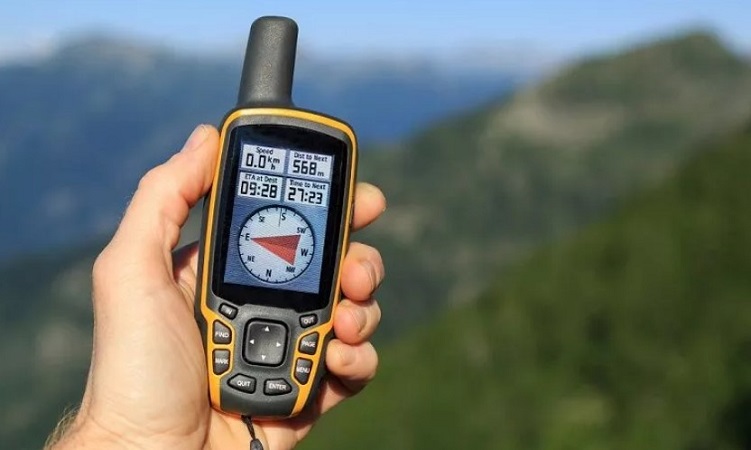Nowadays, it is usual to orient ourselves and move around daily with the help of a device with GPS. But many doubts arise when we want to choose between going hiking with the support of a GPS device or a Smartphone. Here, I will present smartphone vs GPS for hiking: which one is right for you?
Below I discuss the main factors that we must consider to assess the device that best suits hiking. The features of both GPS and Smartphones are very wide. But all GPS devices and smartphones are equally reliable. After reading the differences, you can decide the right decision for your hiking.
About Smartphone For Hiking
The smartphone has a built-in GPS that helps to navigate hiking. The navigation works through an app like google maps. It requires the internet and shows data using exact locations and satellite signals. A GPS sensor works behind the smartphone.
In hiking, the smartphone looks like a lifeline. During an emergency, you can make calls, ask for assistance and support. Also, the latest smartphones are durable and easy to handle. Real-time navigation of the smartphone’s GPS makes it effective for hikers.
About GPS For Hiking
A GPS device allows you to find your way correctly anywhere, even in areas with no cell phone coverage. The device is resistant to shocks and external elements (rain, dust, etc.). You will get greater precision in the reception of GPS signals.
GPS devices are sending precise coordinates to track the approximate location. They have preloaded clear maps like paper maps and sensors so you can navigate without the internet while hiking. Furthermore, the addition of altimeters and barometers allows you to carry more facilities with you.
Smartphone vs GPS for Hiking- What’s The Difference?
It is becoming more and more accessible to reach any place on the planet. But it is necessary to be equipped appropriately in hiking. Here, I have pointed out the differences between Smartphone and GPS for hiking:
1. Coverage
During hiking, we have all been moving erratically with our mobile phones until we find a point of good coverage. So, we do not cut a call or finish sending a message. However, this unforeseen event is common and can cause us much more than an inconvenience. It keeps us reachable and connected in the hiking areas. GPS Watch For Hunting such as the Garmin Foretrex 401 Waterproof Hiking GPS provides greater precision about your position. In addition, it includes connections to anywhere in the world.
2. Battery Life
The smartphone is practically a small handheld device, but one of its great handicaps is the battery life. Its features have increased exponentially, but not the power of its battery. The higher the energy consumption, the less autonomy. GPS devices ensure better performance. In full GPS mode, 16 hours vs. the maximum 4 hours of a Smartphone. The GPS device is compatible with an interchangeable battery.
3. Advanced Navigation
Beyond smartphone maps, hiking in the mountains requires other tools for advanced navigation that guarantee our safety. Basically: 3-axis compass for precise orientation, altimeter and barometer that warns us of pressure changes. It allows us to anticipate meteorological changes. The weather can be an ally or an adversary in our adventures.
4. Resistance
Resistance is a factor in favor of GPS. The GPS has been specifically designed to carry out a specific type of activity, usually outdoor. They usually resist humidity, rain, shocks, heat and extreme cold. Smartphones are more delicate devices and with less demanding resistance certificates. The characteristics of the activity we carry out will determine the choice.
5. Display
The screen is a factor that plays in favor of GPS devices. There are currently GPS brands that offer a good functional design and a quality mapping archive. If we focus on the use of the devices in the mountains, it is important to view the maps on a resistant and trans-reflective screen. It ensures visibility in the impact of sunlight. It is true that there are Smartphones with larger screens. But in no case do they integrate the characteristics mentioned above.
6. Usability
The design of most Smartphones makes their use popular and optimal. However, GPS is designed exclusively to meet specific needs that a Smartphone cannot solve. For example, the buttons of most GPS devices are designed for the outdoor enthusiast.
7. Connectivity
The use of the internet plays in favor of Smartphones. Smartphones can connect directly to the internet without connecting to a computer, offering us many possibilities: online downloads, content exchange (google maps, tracks, routes etc.) or access to many apps. They do not currently have the GPS.
Conclusion
Smartphone vs GPS for hiking: For occasional hiking, surely it will be enough and your smartphone will give you better performance. You can synchronize it with multiple tools, social networks to control your routes, current location, daily exercises, heart rate and much more automatically. If you are going on an extreme and long-time hiking activity, the GPS is the better option instead of a smartphone.






Leave a Reply